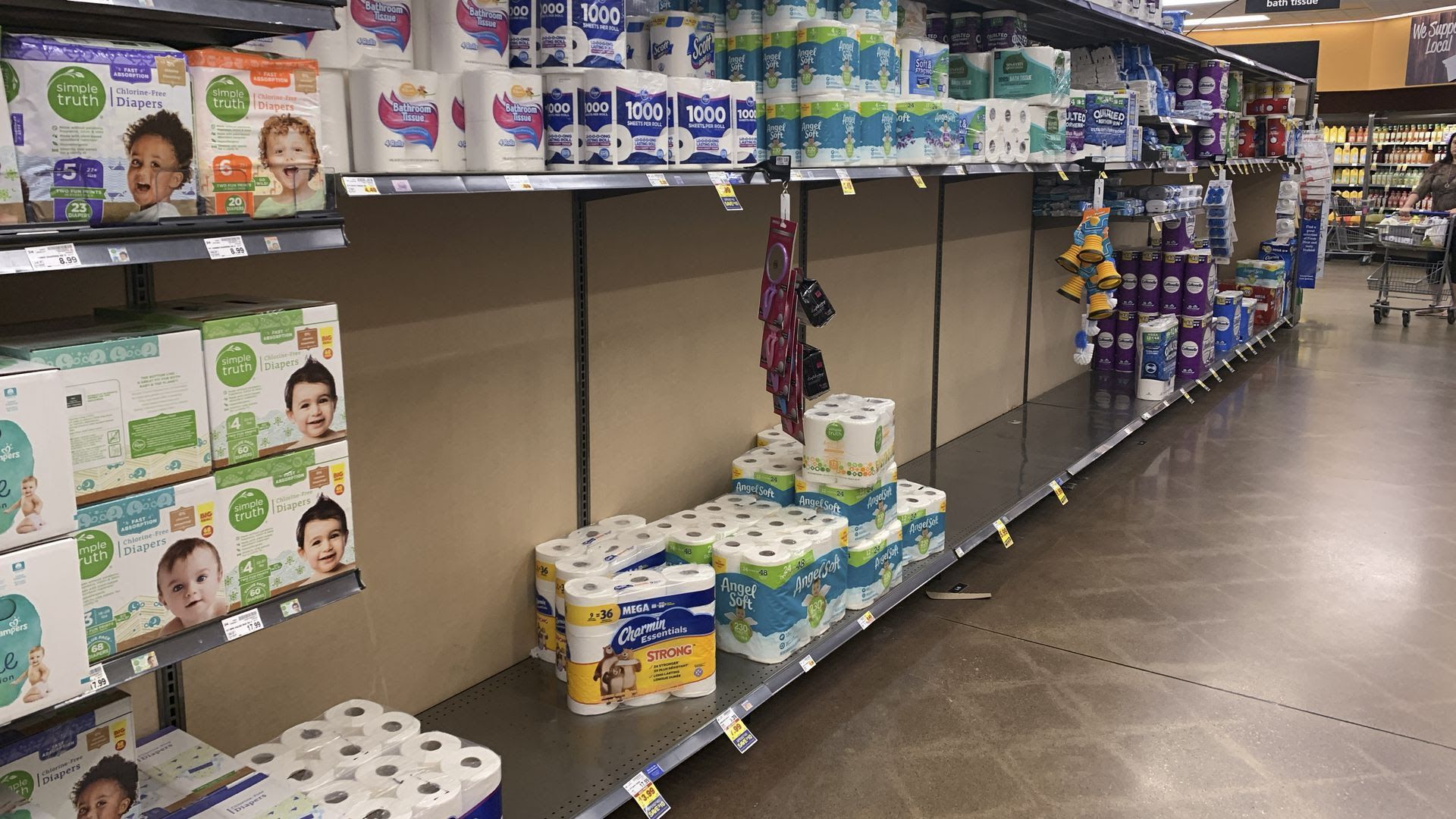Jun 27, 2020 - Energy & Climate
Coronavirus pandemic worsens environmental damage from toilet paper
Add Axios as your preferred source to
see more of our stories on Google.

Remember when toilet paper was going to be our new currency? Photo: Jeremy Hogan/SOPA Images/LightRocket via Getty Images
